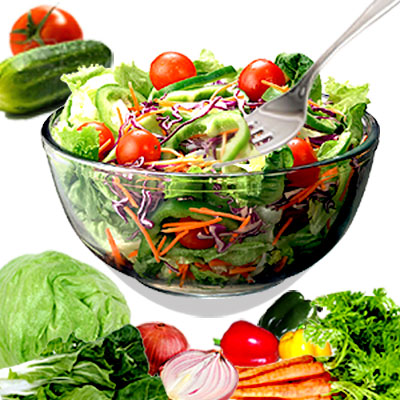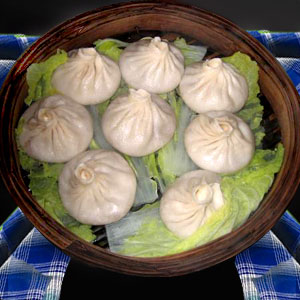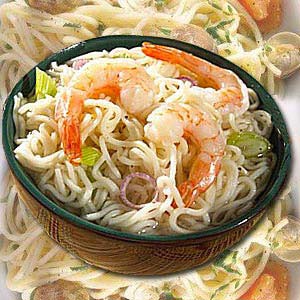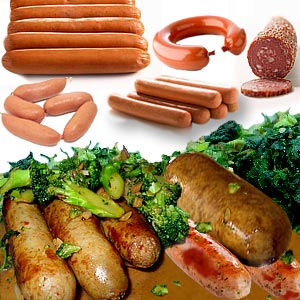Food Poisoning Symptom

Have you been affected by bouts of abdominal cramps, vomiting or dizziness after consuming food? These could be symptoms of food poisoning that results from contamination of the food by virus, bacteria or toxins. Though most instances of food poisoning clear up in a few days, sometimes it can take an alarming turn. Find out more about salmonella food poisoning and e coli food poisoning.
Food poisoning
Bacteria multiply rapidly in the presence of moisture, food and warmth. Typically bacteria multiply in temperatures between 5oC and 63oC. Food poisoning is caused by consumption of food that has been contaminated by bacteria, bacterial toxins, virus or natural poisons.
Causes for food poisoning can be attributed to two categories - infective agents such as virus, bacteria and parasites and toxic agents such as poisonous mushrooms or pesticides. Poor sanitation, unhygienic food handling and improper preservation and packaging of food are common reasons for food poisoning. Symptoms of food poisoning can range from abdominal pains, vomiting, nausea and fever to hepatic, neurologic or renal syndromes.
Food poisoning symptom
Food poisoning symptoms depend on the type of contamination and the amount of infected food eaten. While signs of food poisoning can appear as soon as 30 minutes, most of them worsen and last for a few days. The viruses that can lead to food poisoning are Hepatitis A, Rotavirus and Norwalk. Hepatitis A food poisoning symptoms are sudden onset of fever, loss of appetite and yellowing of the eyes and skin. Bacterial food poisoning takes place due to salmonella, Campylobacter, Staphylococcus aureus and Vibrio cholerae. Shigella or Traveler's diarrhea is a type of food poisoning, which has symptoms such as fever, diarrhea and constant urge to have bowel movements.
Botulism (Clostridium botulinum) is yet another form of food poisoning. Signs of this form of food poisoning begin with blurred vision and lead to subsequent weakness of the entire nervous system. This form of infection is transmitted by honey, sausages and seafood. Toxic agents such as wild mushrooms can cause symptoms of food poisoning such as nausea and vomiting. Sometimes it can even lead to shaking and hallucinations. Food poisoning caused by pesticides passes toxins through unwashed fruits and vegetables. Typical symptoms range from weakness and cramps to increased saliva to shaking of legs and arms.
Listeria is a form of food poisoning that usually causes no symptoms. But it can be harmful to pregnant women and elderly persons. The toxin is found in shellfish, pate, processed meats, and soft cheese. Pregnant women should avoid eating these foods because listeria can be fatal for the fetus.
Food poisoning treatment
Young children, elderly persons and pregnant women must take special care when they notice signs of food poisoning. Treatment for food poisoning is needed if symptoms persist and lead to severe vomiting, dehydration, and blood in stools or severe abdominal cramps. Patients on medication, particularly for heart conditions and diabetes should seek prompt and early medical advice. Young children and babies are very susceptible to rapid and dangerous dehydration. Treatment for food poisoning in such cases must not be delayed.
Salmonella food poisoning
Salmonella bacteria are usually found in poultry, eggs, unprocessed milk and meat. This type of bacteria causes infection to the stomach and intestines. Salmonella is an important cause of food poisoning. Insufficient cooking and contamination of cooked foods can lead to salmonella food poisoning. The bacteria are destroyed at cooking temperatures over 150o F.
Symptoms of salmonella food poisoning include headaches, stomach cramps, fever, nausea and vomiting and diarrhea and constipation. Symptoms of salmonella food poisoning appear within 12 to 48 hours. While mild cases clear up within a week, severe cases may need antibiotics. If a person contracts salmonella food poisoning and has blood in the feces and signs of jaundice or dehydration, immediate medical treatment must be sought.
Food poisoning and pregnancy
Food poisoning during pregnancy can be avoided by carefully monitoring your diet. Do not consume ham, turkey and salami unless they are steaming hot. Refrigerated pates and meat spreads and pastes can harbor Listeria bacteria. Ensure that the milk is pasteurized before consumption. Hard cheeses are safer than soft cheeses like Feta, Roquefort, Camembert and Brie.
E Coli food poisoning
E Coli is usually found in the gut of humans and animals. E Coli O157 is found in raw and undercooked meat, raw vegetables as well as milk that has not been pasteurized. Typical symptoms of e coli food poisoning develop within a couple of days. E coli food poisoning cases are noticed with eating undercooked and contaminated ground beef as well as consuming milk and daily products from unpasteurised milk.
Mild fever, severe diarrhea and abdominal cramps are symptoms of e coli food poisoning. A small percentage of persons suffering from this form of food poisoning develop hemolytic uremic syndrome. This is a condition where the red blood cells are destroyed and the kidneys fail.
Avoid food poisoning by ensuring that your hands are clean before handling food. Wash raw vegetables thoroughly. Refrigerate meat and dairy products below 40 degrees F. Avoid raw eggs. Cook meat and seafood thoroughly. Avoid cross contamination of food. Do not place cooked meat on a platter that held raw meat. Wash cutting boards thoroughly before using them again. Refrigerate leftovers promptly since bacteria grow rapidly at room temperature.
Top of the Page: Food Poisoning Symptom
Tags:#food poisoning #food poisoning symptom #food poisoning treatment #sign of food poisoning #symptom treatment of food poisoning #salmonella food poisoning #treating food poisoning #food poisoning and pregnancy #e coli food poisoning #
 Food and Nutrition Facts
Food and Nutrition Facts Chamomile
Parsnip Soup
Dim Sum
Gazpacho Soup
Whole Grain Cereal
Jicama Nutrition
Bok Choy Stir Fry
Chia Seeds Benefits
Teff Nutrition
Kaniwa
Flax Seed
Wheatgrass Benefits
Kelp Benefits
Types of Chili Peppers
Medicinal Benefits of Pomegranate
Arugula Leaves
Maca Root
Pitaya Fruit
Benefits of Celery
Leek
Asparagus Benefits
Oyster Stew
Oyster Mushroom
Lupin Beans
Quinoa
Freekeh
Extra Virgin Olive Oil
Dill Pickle
Sauerkraut
Fat Burning Foods
Nutrition Chart
Food Combining
Calorie Counter
calories ...
Non Alcoholic Beverage
Punch Recipes
Food Label Nutrition
Homemade Sausages
Cooking Steak
Eating on a Budget
Budget Friendly Recipes
Quick Recipes
 Healthy Packed Lunch
Healthy Packed Lunch Overnight Oats Recipes
Eggplant Casserole
Brunch Recipes
Burrito Recipes
Muffin Recipes
Cupcake Frosting
Apple Crisp
Stir Fry Cooking
Seafood Salad Recipe
Cooking Corn on the Cob
Finger Food Recipe
Sandwich Recipe
Bread Stuffing Recipes
Easy Chili Recipes
Picnic Recipes
Edible Mushroom Recipes
Mushroom Soup Recipes
Dip Recipe
Tapas Recipe
Corned Beef Recipe
Canned Salmon Recipe
Tilapia Recipes
Crumb Cake
Flourless Chocolate Cake
Regional Food
 Lasagna Recipe
Lasagna Recipe Peruvian Ceviche
Chinese Food Recipe
Vietnamese Food Recipe
Malaysian Food
Korean Food Recipe
Indian Curry Recipe
Edible Rice Paper
Mexican Food Recipe
Quesadilla
Guacamole Dip
Italian Food Recipe
Spanish Food Recipe
Kosher Food
Falafel Recipe
Tandoori Chicken
Noodles
Canape
Couscous
Meatloaf
Chowder
Gumbo Recipe
Crockpot Recipes
Moroccan Food
Healthy Food
Pre Workout Snack
Matcha Tea
Simple food Swaps to Lose Weight
Foods to Beat Stress
Foods to beat Insomnia
Bone Density Foods
Prebiotic Foods
Kefir Grains
Agave Nectar
Spicy Trail Mix
Pesto Sauce
Homemade Hummus
Crab Cake Sauce
Bamboo Shoots Nutrition
Lemon Grass Plant
Butter Beans Recipes
Loose Green Tea
Seaweed Nutrition
Healthy Food
Low Fat Granola Bar
Steel Cut Oatmeal
Fruit Pizza
Pizza Toppings
Green Smoothie
Healthy Meal Planning
Delicious Mealtime Recipes
Heart Healthy Fats
Healthy Heart Recipe
Healthy Dinner Recipe
Healthy Dessert Recipe
Healthy Fast Food
Healthy Kid Recipe
Probiotic Food
Diabetic Friendly Foods
Fruit Salad Recipe
Bread Pudding
Tofu Recipe
Oat Bran
Broccoli Salad
Avocado Recipe
Iron Rich Food
Brain Foods
Antioxidant Food
Natural Diuretic
Low Fat Cooking Tips
Rice Pilaf Recipe
Low fat Chicken Recipe
Food Tips

Sous Vide Cooking Technique
Natural Sugar Substitute
Stevia Sugar Substitute
Sunflower Seeds Nutrition
Bouquet Garni
Cake Decorating Tips
High Satiety Foods
Thanksgiving Dinner
Safe Food Storage
Frozen Food Storage Tips
Cold Storage Food Tips
Leftover Recipe
Food Pyramid
Dairy Free Food
Microwave Cooking
Food Intolerance
Homemade Ice Cream
Apple Cider Vinegar
Benefits of Honey
Beverage Cooler
Food Poisoning Symptom
Food Allergy Symptom
Food Addiction
Top of the Page: Food Poisoning Symptom
Popularity Index: 101,360

